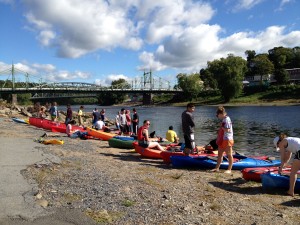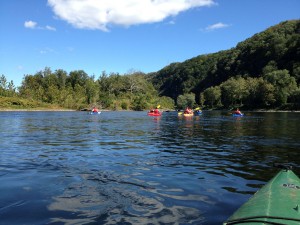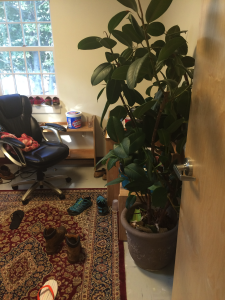While reading Leopold’s Flambeau I began to think about this take take take relationship we have with nature. In this piece Leopold discusses how the soil so wonderful for the lumber industry was also great to the dairy industry that took off in this place. So first this industry takes some land from this wildlife. As this dairy industry grew the dairy farmers demanded more electricity, so in order to gain this they needed a dam to generate more power and took away from this wildlife once again. It seems to be that if our society can benefit we will take take take without too much of a second thought about the impacts.
This mention in Flambeau made me think specifically about how this applies to the dams we are looking at on the Bushkill Creek as well. At some point the Bushkill was uninterrupted by dams, the trout could migrate as they please, and the water could flow freely. However, as Easton developed and expanded, the city took more land and further exploited the Bushkill area for economic benefit. In the 1800s a variety of mills popped up along the Bushkill, utilizing its water to power their industries. We took from this system and now the remaining, abandoned dams continue to impede the Bushkill even though we do not make use of them anymore. In class we have discussed the proposed removal of these dams, and that the process is moving for which is great news. I hope that this goes through soon; I think it would be nice to feel as though we could give back some of what we have taken.
I found this link with a gallery of old mills, and some of them were on the Bushkill Creek if you get a chance to explore the Pennsylvania category!
http://millpictures.com/mills.php



